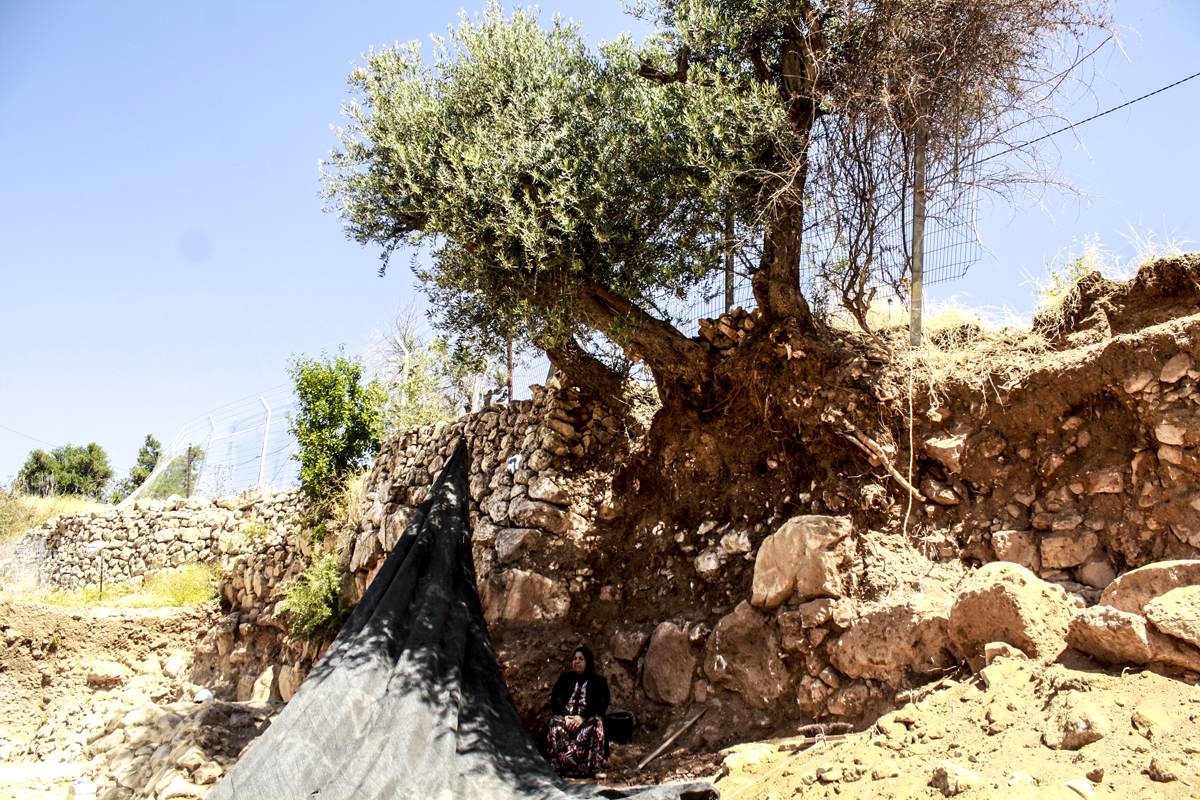CPTnet
19 May 2014
AL-KHALIL (HEBRON) Excavations continue on Abu Haikel Land
 |
| Feryel Abu Haikel sits in nonviolent resistance to further expansion of the Israeli archaeological dig onto her land |
The Israeli Antiquity Authority (IAA)
continues to expropriate Palestinian land in Hebron, on the Tel Rumeida hillside. On Sunday 18 May 2014, the IAA
workforce, under the instruction of project coordinator Emmanuel Eisenberg,
continued to cause structural damaged to the Abu Haikel land, deploying
questionable and illegal archeological practices, while at the same time utilizing
the Al Jobeh family’s land without the family’s consent.
The excavations are illegal under Israeli law, according to the
Oslo Agreement, which Israel signed in the mid-90s— a process jointly agreed
upon by Israel and Palestine as a vehicle to peace and stability. Article 2 of the Israeli-Palestinian Interim
Agreement describes in detail how Israeli and Palestinians would jointly
administer archeological projects in Palestinian territory. The IAA has not abided by this
agreement in Tel Rumeida.
As previously reported, the IAA had verbally agreed to halt
the archeological excavations on the land bordering the Abu Haikel plot until
the borders of the property were properly demarcated. Despite the agreement, the IAA illegal activities continued
onto the Abu Haikel’s property, eventually undermining a retaining wall, causing it to collapse and exposing
the roots of a centuries-old olive tree to the elements. These breaches were not the first
damage to the Abu Haikel land as a result of the excavations.
The disregard of both international law and Israeli law, combined
with verbal and physical assaults of the families living on Tel Rumeida is not
an isolated incident, but rather constitute a colonial methodology by the
Jewish settler enterprise in Israel.
These tactics were the same political instruments that led to the
establishment and expansion of the Israeli settlement of Tel Rumeida.
Explaining how he could destroy the foundations of the Abu Haikel’s
wall, Emmanuel Eisenberg said explicitly that he, “Doesn’t give a shit,” and articulated at length the nature of his work,
in which he envisioned the site becoming a tourist destination with a kiosk or
restaurant on the Palestinian lands.
At one point during the dialogue, Eisenberg had attacked a human rights
observer.
As has been chronicled by Israeli Jewish historian Illan Pappe,
among others, forced displacement, harassment, and the suppression of basic
rights has been the central component of Israeli policy toward the Palestinians. This reality is demonstrated with facts
on the ground in Hebron specifically, with over a thousand Palestinian homes
and shops evacuated, razed, or confiscated for the benefit, protection, and
expansion of Jewish settlements.
Eisenberg’s
work on Tel Rumeida is an extension of formal Israeli policy to settle in
“Judea and Samaria” and another instrument of the settlement plan to force
Palestinians to leave Hebron.



